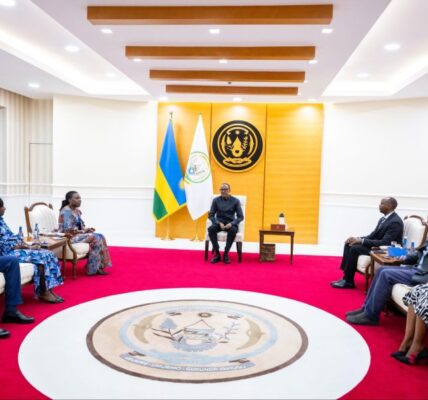Kigali, Rwanda – July 2025 – Rwanda continues to register strong growth in its export sector, with a notable 11.4% increase in domestic exports during the first quarter of 2025, according to a new report from the National Institute of Statistics of Rwanda (NISR).
The report, released on July 21, 2025, highlights that Made-in-Rwanda products generated RWF 688 billion (approximately $480.82 million) in Q1 2025, up from RWF 617 billion ($431.61 million) in the same period last year. This surge underscores Rwanda’s commitment to industrialization and export diversification.
“This steady increase confirms Rwanda’s capacity to produce competitive goods for international markets,” the report states, adding that the local industrial sector is playing a vital role in driving economic transformation.
Export Growth Amid Shifting Trade Dynamics
While domestic exports are on the rise, the report shows a decline in imports and re-exports, indicating a shift in Rwanda’s trade patterns:
- Imports dropped by 2.23%, totaling RWF 1,975 billion ($1.38 billion) in Q1 2025.
- Re-exports fell by 21.82%, amounting to RWF 194 billion ($135.39 million).
- Overall trade volume stood at RWF 2,859 billion ($1.99 billion) — a marginal 0.99% decrease from Q1 2024.
Despite the overall dip in total trade, analysts view the strong domestic export performance as a positive signal for economic resilience and reduced reliance on imports.
Top Export Destinations and Products
Rwanda’s domestic products are increasingly reaching international markets. The top export destinations in Q1 2025 included:
- United Arab Emirates (UAE)
- Democratic Republic of Congo (DRC)
- China
- Luxembourg
- United States of America
The leading re-exported items were:
- Food products and live animals: RWF 61 billion ($42.33 million)
- Petroleum products: RWF 49 billion ($34.35 million)
On the import side, China, Tanzania, Kenya, India, and the UAE remained Rwanda’s top trading partners, supplying a variety of goods including machinery, fuel, and consumer products.
Made-in-Rwanda Policy Driving Economic Gains
Experts attribute the export boost to the success of Rwanda’s Made-in-Rwanda policy, which promotes local production and reduces dependency on imported goods. The report also points to ongoing industrialization and investment in value-added manufacturing as key enablers of growth.
As Rwanda expands its participation in regional trade blocs such as the East African Community (EAC), COMESA, and the African Continental Free Trade Area (AfCFTA), local manufacturers are expected to gain even more access to continental markets.
“This momentum in domestic exports positions Rwanda as a rising manufacturing and trade hub in Africa,” said a senior official at the Ministry of Trade and Industry.
Looking Ahead
With the government continuing to invest in infrastructure, logistics, and private sector development, Rwanda’s export sector is projected to remain on an upward trajectory. Policymakers are optimistic that boosting local production will support job creation, increase foreign exchange earnings, and drive sustainable economic growth.




